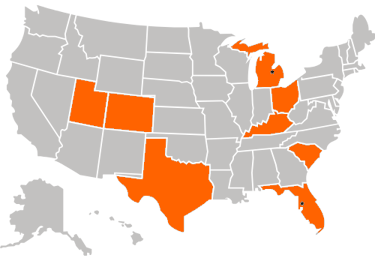Home Warranties vs. Home Insurance: What You Need to Know
When it comes to protecting your home, understanding the differences between a home warranty and home insurance is crucial. While both may seem like they offer similar protections, they serve very different purposes. Below, we’ll break down the key distinctions, highlight the critical role of home insurance, and explain why comprehensive insurance coverage is essential for safeguarding your property.


What is a Home Warranty?
A home warranty is a service contract that covers the repair or replacement of specific home systems and appliances when they break down due to normal wear and tear. These contracts typically last for a year and may include items like:
Appliances: Refrigerators, dishwashers, ovens, or washing machines.
Systems: HVAC, plumbing, or electrical systems.
Key Features of Home Warranties:
Optional: Home warranties are not mandatory and are often marketed as an add-on for homeowners.
Limited Scope: They only cover specific items listed in the contract, often excluding pre-existing conditions or damage from external causes.
Service Fees: Homeowners pay a service fee (typically $50–$150) each time a repair is needed, in addition to the annual premium.
Exclusions and Fine Print: Warranties often have strict conditions, such as requiring regular maintenance records or excluding certain types of breakdowns.
Why Home Warranties May Fall Short:
While home warranties might sound appealing, they often come with limitations that can leave homeowners frustrated:
Denial of Claims: Many claims are denied due to vague clauses about “pre-existing conditions” or “improper maintenance.”
Limited Coverage: Warranties don’t cover structural damage, natural disasters, or catastrophic events—leaving significant gaps in protection.
Cost vs. Value: The cost of premiums and service fees can add up quickly, sometimes exceeding the value of repairs.
Delays and Disputes: Home warranty companies may use third-party contractors, leading to delays or subpar service.
For these reasons, relying solely on a home warranty can leave you vulnerable to significant financial risks. Instead, prioritizing home insurance and supplemental policies offers far more robust protection.
What is Home Insurance?
Home insurance (also called homeowners insurance) is a policy designed to protect your home, personal belongings, and financial well-being from a wide range of risks. It’s typically required by mortgage lenders and provides comprehensive coverage for your property and liability.
Key Features of Home Insurance:
Broad Coverage: Home insurance typically covers:
Dwelling: The structure of your home (walls, roof, foundation) against perils like fire, windstorms, hail, or vandalism.
Personal Property: Your belongings, such as furniture, electronics, and clothing, if damaged or stolen.
Liability: Protection if someone is injured on your property or if you accidentally damage someone else’s property.
Additional Living Expenses: Costs for temporary housing if your home becomes uninhabitable due to a covered event.
Customizable Policies: You can add endorsements or riders for specific risks, such as flood or earthquake coverage, to tailor the policy to your needs.
Financial Security: Home insurance can cover repair or rebuilding costs, which can amount to hundreds of thousands of dollars in the event of a major loss.
Why Home Insurance is Essential:
Unlike home warranties, home insurance is designed to protect against catastrophic losses that could otherwise devastate your finances. Here’s why it’s a must-have:
Protection Against Major Disasters: Home insurance covers events like fires, storms, or theft, which can cause extensive damage far beyond the scope of a home warranty.
Lender Requirement: If you have a mortgage, your lender will require home insurance to protect their investment, ensuring you’re not left with an unpayable loan after a disaster.
Liability Coverage: Home insurance protects you from lawsuits if someone is injured on your property—an area where home warranties offer no help.
Peace of Mind: Knowing your home and belongings are protected against a wide range of risks allows you to focus on enjoying your home rather than worrying about potential costs.
The Importance of Supplemental Insurance (Flood, Earthquake, etc.)
Standard home insurance policies don’t cover every risk, which is why supplemental insurance is critical in certain areas. Here are key policies to consider:
Flood Insurance: Floods are the most common natural disaster in the U.S., yet standard home insurance excludes flood damage. Flood insurance, available through the National Flood Insurance Program (NFIP) or private insurers, is essential if you live in a flood-prone area. Even an inch of water can cause thousands of dollars in damage, making this coverage a priority.
Earthquake Insurance: If you live in an earthquake-prone region (e.g., California), earthquake insurance is vital. A single quake can destroy your home, and standard policies won’t cover it.
Windstorm or Hurricane Insurance: In coastal areas, you may need separate windstorm or hurricane coverage, as high winds can cause significant damage not always fully covered by standard policies.
Sewer Backup or Water Damage Coverage: This add-on protects against damage from sewer or drain backups, which can be costly and are typically excluded from standard policies.
Why Supplemental Insurance Matters:
Natural disasters and other excluded events can wipe out your home’s value overnight. For example:
A 2023 FEMA report estimated that just one foot of floodwater can cause up to $25,000 in damage to a 2,500-square-foot home.
Earthquake damage in high-risk areas can cost hundreds of thousands to repair, far exceeding the typical home warranty’s coverage limits.
By investing in comprehensive home insurance and supplemental policies, you ensure your home is protected against a wide range of risks, unlike the narrow scope of a home warranty.
How to Avoid Home Warranties and Prioritize Home Insurance
While home warranties may be pitched as a way to “save money” on repairs, they often fall short when compared to the robust protection of home insurance. Here’s how to make informed decisions:
Understand Your Needs:
Assess your home’s risks (e.g., flood zones, earthquake-prone areas) and prioritize insurance policies that address those risks.
Recognize that home warranties only cover specific appliances or systems, while home insurance protects your entire property and liability.
Read the Fine Print:
Home warranty contracts are notorious for exclusions and limitations. Before signing, scrutinize the terms to avoid surprises when filing a claim.
Compare this to home insurance, where coverage is broader and more transparent, with clear policy terms.
Invest in Comprehensive Insurance:
Work with a licensed insurance agent to customize your home insurance policy, adding endorsements like flood or earthquake coverage as needed.
Ensure your policy’s coverage limits are sufficient to rebuild your home and replace your belongings.
Budget for Maintenance:
Instead of paying for a home warranty, set aside funds for routine maintenance and repairs. Regular upkeep can prevent many of the issues warranties claim to cover.
Shop Around:
Compare home insurance providers to find the best rates and coverage options. Bundling home insurance with auto or other policies can also save money.
Avoid aggressive sales tactics from home warranty companies, which may pressure you into unnecessary contracts.
Conclusion
While home warranties might seem like a convenient way to cover appliance repairs, they pale in comparison to the comprehensive protection offered by home insurance and supplemental policies like flood or earthquake coverage. Home insurance is not just a financial safety net—it’s a necessity for protecting your home, belongings, and peace of mind against unexpected disasters. By prioritizing home insurance and carefully assessing your property’s risks, you can avoid the pitfalls of home warranties and ensure your home is truly protected.
For more information on home insurance options, consult with one of our licensed insurance agents or visit trusted resources like the National Association of Insurance Commissioners (NAIC) website. Protect your home the smart way—choose home insurance.




